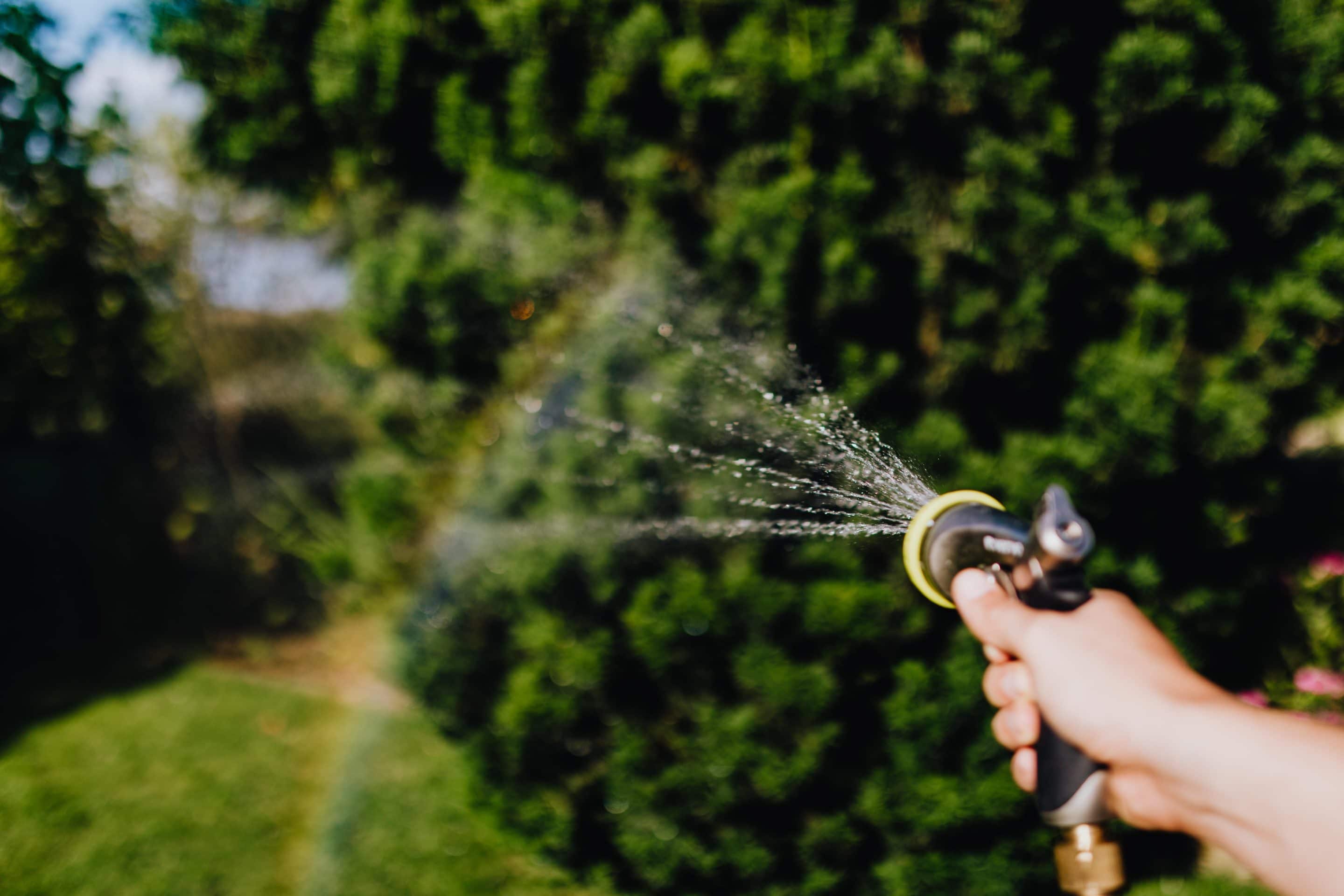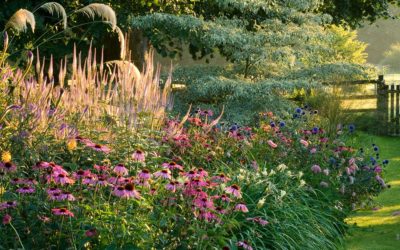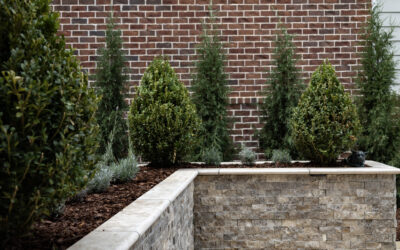If you’re concerned about the environment, you want to make sure your landscape practices are not harming the planet with unnecessary chemicals, unsafe practices or excessive use of resources. Gardens of Babylon shares your concern, and can take eco-friendly care of your landscape with regular maintenance of your yard and gardens.
“It’s really a three-pronged approach: using organic materials, appropriate maintenance, and paying attention to what’s successful in the landscape,” says landscape designer Chloe Barrett, a maintenance specialist on Gardens of Babylon’s design team.
Fertilizers are sourced from organic materials (never glyphosate or other harmful chemicals); when a pesticide is called for, the choice is natural Neem oil or other non-chemical measures. Maintenance procedures include proper pruning practices, and timely trimming and care of perennial and annual garden beds.
“One of the biggest issues is site analysis,” Barrett says, explaining that designers consider the light, water and soil needs of plant placement in a design plan. If you continue to plant something that fails, you’re not just throwing away the plant, she says, you’re also wasting the resources that went into growing it and bringing it to your landscape. “Making proper recommendations for the site is critical to landscaping,” she says.
Considering the lawn
“Turf is, by nature, a bit of a sign of luxury,” Barrett says. “One of the big things I see is that clients are becoming more educated about the use of chemicals. People realize that violets and clover are appealing.”
For clients who still don’t share the appeal, Barrett admits that weed management without chemicals is a challenge. In that case, eco-maintenance includes regular aeration and overseeding to allow turfgrass to thrive, and manual control – digging and pulling weeds as they appear. It’s also important to make sure irrigation systems are in order and there are no drainage issues in the lawn that would affect the growth of turfgrass.
Gardens of Babylon’s natural turf care is a six-step program of weed control, fungal treatment, dethatching, fertilization and insect control.
“Those are the overarching issues that can be addressed for a more sustainable landscape.”
Maintenance on schedule
A typical regular maintenance plan includes two large cleanups each year, in February or March ahead of the growing season, and again in the fall to prepare the landscape for winter. Spring tasks may include pruning ornamental or fruit trees, cutting back roses, maintaining boxwoods, removing the first flush of cool-weather weeds, and a spring mulching to prevent soil moisture evaporation and germination of weed seeds in garden beds.
Throughout the growing season, regular maintenance includes a visit every couple of weeks so weeds don’t grow out of control “Many gardeners enjoy doing the work and just want us to come out and do the heavy lifting,” Barrett says. “We make sure our clients don’t miss the flowers for the weeds.”
Fall tasks would include cutting back perennials and putting beds to rest for the season, adding a secondary layer of mulch if requested.
Mosquito control is also among the available services, using organic methods. “It’s not a blanket pesticide, but it does prevent the formulation of larva over time,” Barrett says. Eco-friendly leaf services can be arranged in the fall. “We like to mulch the leaves on-site to return organic material to the soil.”
Personal Farmer
For clients who have the desire for home-grown produce but not the time or ability to grow it, Gardens of Babylon offers a full-scale vegetable- or fruit-planting service — “Everything from designing raised beds, installing plants and providing ongoing maintenance,” Barret says.
The Personal Farmer makes regular visits to feed and weed and make sure everything is healthy. Harmful insects are eliminated with a spray of food-grade insecticidal soap. “We can come on a monthly basis to keep everything in check,” she says. “Most of our personal farmer clients get a twice-a-year install and two or three maintenance visits through the season.”
Commitment to sustainability
Sustainable practices don’t stop once the landscaping crews are finished.
“We are working on a company-wide waste diversion policy of recycling and composting,” says Leah Mattix, marketing director at Gardens of Babylon. “Our garden center waste diversion from composting since 2019 is at 81,300 pounds. The landscaping roll-off dumpsters have diverted 234,000 pounds of landscape waste.
Landscaping initiatives for recycling, composting and reducing landscape waste include mowing and mulching to build organic matter on-site; mulching leaves to use in local garden projects; repurposing soil by sifting out debris and reusing it in local grading projects.
Rock and concrete pulled from jobs are recycled into aggregate for hardscape construction projects; pallets are given to vendors to be reused if they are pressure-treated; recycled or composted if they are not.
“We focus on water-wise irrigation. Our landscape designers will do sustainable designs like xeriscapes, edible landscapes, raised garden beds,” Mattix says. “We focus on local products; the stone, cedar beds, compost, and compost tea (“Develops healthy, living soil, key for healthy plants,” says Barrett) are all local.”
Even the Garden Center’s break-room supplies are either reusable or compostable. And for the convenience of customers who would rather recycle their plastic nursery pots instead of throw them in the trash, there’s a recycling bin at the Garden Center, near the loading zone.
Getting on board
Clients can begin a maintenance program at any time. “We set up a 30-minute window to talk by phone through needs and expectations, then come to your home for an on-site evaluation,” Chloe Barrett says.
To schedule a consultation for a Landscape Maintenance Program, visit the Gardens of Babylon website here.





